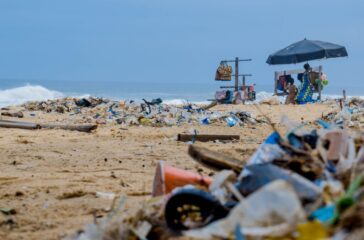Effects of “unprecedented” marine heat waves may be irreversible
By Grace van Deelen
Tens of thousands of dead fish are washing up on the Texas Gulf Coast, unprecedented numbers of seabird carcasses are showing up on beaches, and toxic algal blooms are growing in size and frequency – all signs of the calamitous impacts of warming trends for ocean waters that some scientists say may be irreversible.
July marked Earth’s hottest temperatures ever, and heat waves are currently affecting over 44% of ocean area, marking marine heat wave that is the most widespread ever recorded. Scientists at the National Oceanic and Atmospheric Administration (NOAA) expect that number to rise to over 50% by this fall. Usually, about 10% of the world’s oceans experience a heatwave at any given time.
The levels of marine heat waves this year are “unprecedented,” said Dillon Amaya, a scientist who studies climate extremes at the NOAA.
The marine heat wave could lead to a redistribution of ocean species that may then also destabilize additional ecosystems, according to Jenn Caselle, a research biologist at the University of California, Santa Barbara’s Marine Science Institute.
“These marine communities that are reshuffling right now could stay in those reshuffled states and become our new normal,” said Caselle.
 EWG
EWG








